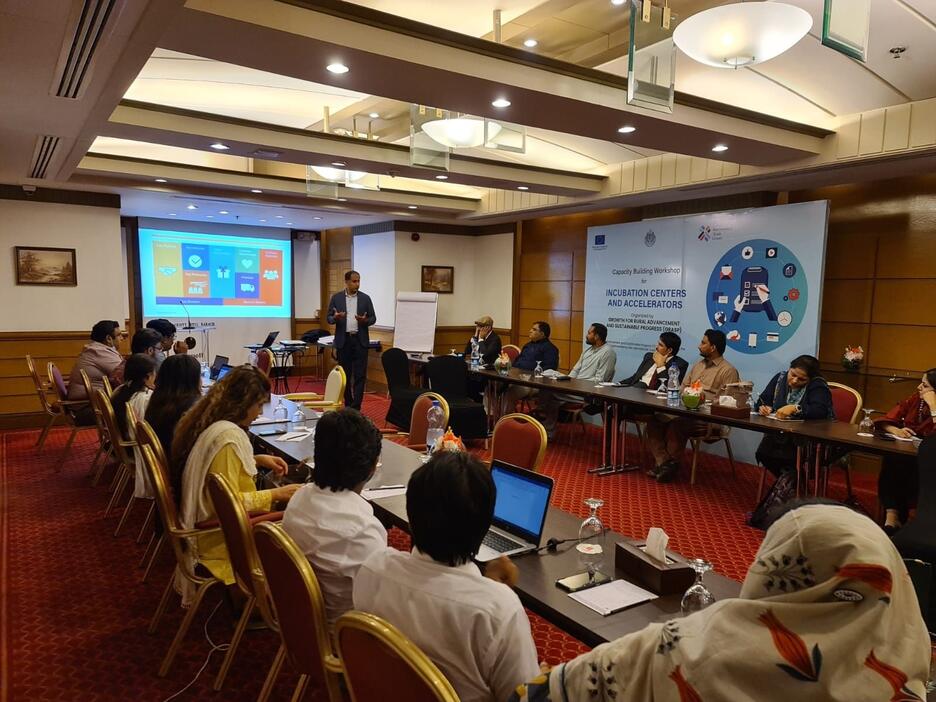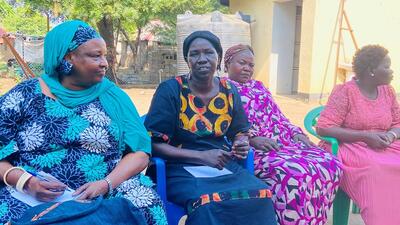
Designing an ecosystem for entrepreneurs
From ego systems to ecosystems: ITC developed a diagnostic tool for ecosystems that promotes entrepreneurship and helps start-ups thrive
An entrepreneurship support ecosystem is a collaborative arrangement through which institutions combine their resources, capabilities, and products to offer a coherent, entrepreneur-oriented solution for entrepreneurs.
When they work well, ecosystems are highly connected networks that allow institutions to create value that no single one of them could have created alone. Well-managed ecosystems improve the management of critical interdependencies to increase benefits or reduce costs. In an ideal world, these economic ecosystems, like biological ones, are self-organizing and deeply co-dependent.
Entrepreneurship support organizations such as incubators, accelerators, venture capital funds, angel networks, co-working spaces, and crowdfunding platforms increasingly work together to deliver services for entrepreneurs.
However, many work in silos, duplicating services and designing initiatives without sufficient information to address entrepreneurs’ needs. To improve their effectiveness and efficiency, institutions need to first understand the nature of the entrepreneurship ecosystem they belong to.

This is where the International Trade Centre (ITC) steps in. We have designed a diagnostic tool for these institutions that responds to the following questions:
- What are the gaps and overlaps in the service offered to different types of entrepreneurs?
- Who is currently offering support services to entrepreneurs?
- For what purpose are the institutional actors in the ecosystem connected, and how strong are these connections?
- What additional connections and shared services could increase the density and value of the ecosystem and the effectiveness of institutions within it?
- How is the experience of entrepreneurs? What can be improved?
Our methodology, tested in more than 19 countries, informs and contributes to the development and growth of entrepreneurship support ecosystems.
The analysis of the ecosystem uses three perspectives:
- Service mapping and gap analysis to understand who is doing what for start-ups and what is missing.
- Network analysis to visually capture the interactions among the institutions in the ecosystem. The analysis differentiates between information exchanges, financial collaborations, and service delivery collaborations.
- User experience analysis to validate institutions offering and to understand the entrepreneur navigation journey in the ecosystem.
Acknowledging the complexity and interconnectedness of the information gathered, the findings from this analysis are fed into a systems framework that considers the barriers that constrain entrepreneurs looked at from four angles, from the most superficial events and patterns to the less flexible and more deeply embedded structures and mental models.
Finally, the diagnostic identifies specific recommendations for the ecosystem and the institutions in the network to accelerate the growth and effectiveness.

The diagnostic tool validates findings and recommendations with ecosystem actors and supports the prioritisation of actions for the network.
For example, a diagnostic report has translated into specific incubation programmes in the Pacific, forming hub networks for better coordination and services for entrepreneurs in Tanzania, as well as trainings for various entrepreneurship support organizations in Pakistan on helping start-ups growing.
Partner with us and contribute to an ecosystem change! Contact Nuria at nrull [at] intracen.org.
















